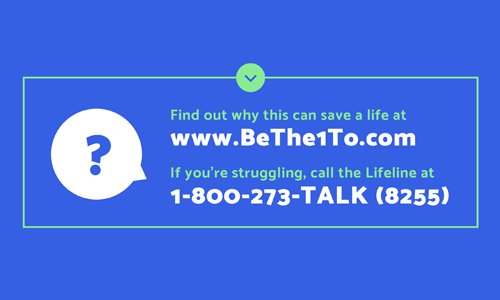Julian Merlino was a fun-loving teenager and a star tailback for his high school football team. Unbeknownst to many, Julian suffered from debilitating depression and anxiety. On the outside Julian seemed very confident and outgoing. However, behind his “mask” he was fighting very hard to keep it together. The stigma of mental illness kept Julian and his family silent. He suffered two diagnosed concussions in middle school football. Midway through his sophomore season, Julian became unable to attend school, he missed football practices, and he became more aggressive and irritable while losing interest in football. On December 30, 2017, Julian took his life at age 15. His family donated his brain to the UNITE Brain Bank in Boston, where he became the youngest brain donor in the history of the Brain Bank.

Julian Alexander Merlino loved dancing hip hop from the time that he was 5 years old. As a young boy, Julian was diagnosed with depression and anxiety, which made him feel shy and insecure. Whenever he danced hip hop on stage, his fears would disappear. Little did he know, his years of dancing hip hop would be a great transition into playing football. Julian began to play football in the 7th grade.

Unfortunately, during the first game, he took a helmet-to-helmet hit and was concussed. He was out for several games and missed numerous days of school.
In 8th grade, Julian suffered another concussion. This one kept him out for two weeks and the remainder of the season.
He played for almost two more seasons as a running back — #26. Julian was a beast on the field. During his freshman and sophomore years playing football, Julian never complained of concussions, probably because he knew that if he was concussed one more time he’d be out of football for good. However, Julian’s friends would notice that he was visibly shaken and unwell after games.

During his sophomore season, Julian began to miss football practices and school. He began losing interest in his greatest passion. His behavior became aggressive and he was irritable. Two months later, on December 30, 2017, Julian took his life at age 15.

Julian loved spending time with his family, girlfriend, and friends. He enjoyed discovering the newest hip hop music. When he wasn’t in his hometown during the school year and playing football, he enjoyed endless summer days boating and surfing on the lake with friends. He was a jokester and prankster. Julian is missed terribly by his family and friends.

In search of some answers and to help others, Julian’s family donated his brain to the UNITE Brain Bank. Julian was the youngest brain donor in the history of the Brain Bank.
A message of hope from Julian’s parents and sister:
We want anyone reading this who may be feeling chronic debilitating pain, desperate, lonely, or depressed to know that things will get better! Don’t let your struggles define you! Reach out to a friend, family member or coworker. You are loved! With help and support you will feel well again. You are not alone! Don’t give up hope!
Julian’s mom, Elsa, is a mental illness and suicide support advocate for families who have lost a child or family member to suicide. Elsa personally writes letters of hope to others who have suffered the unimaginable. It’s a simple gesture to let these moms know they are not alone. When suffering from suicide grief, it means the world to these moms and family members that they are not alone.
Suicide is preventable and help is available. If you are concerned that someone in your life may be suicidal, the five #BeThe1To steps are simple actions anyone can take to help someone in crisis. If you are struggling to cope and would like some emotional support, call the 988 Lifeline at 988 to connect with a trained counselor. It’s free, confidential, and available to everyone in the United States. You do not have to be suicidal to call. If you’re not comfortable talking on the phone, consider using the Lifeline Crisis Chat at www.crisischat.org.
If you or someone you know is struggling with lingering concussion symptoms, ask for help through the CLF HelpLine. We provide personalized help to those struggling with the outcomes of brain injury. Submit your request today and a dedicated member of the Concussion Legacy Foundation team will be happy to assist you.
The Merlino family would also like to bring awareness to the Depression and Bipolar Support Alliance (DBSA). The vision of the DBSA is for wellness for people living with mood disorders (depression and bipolar disorder). Their mission is to provide hope, help, support, and education to improve the lives of people who have mood disorders.

